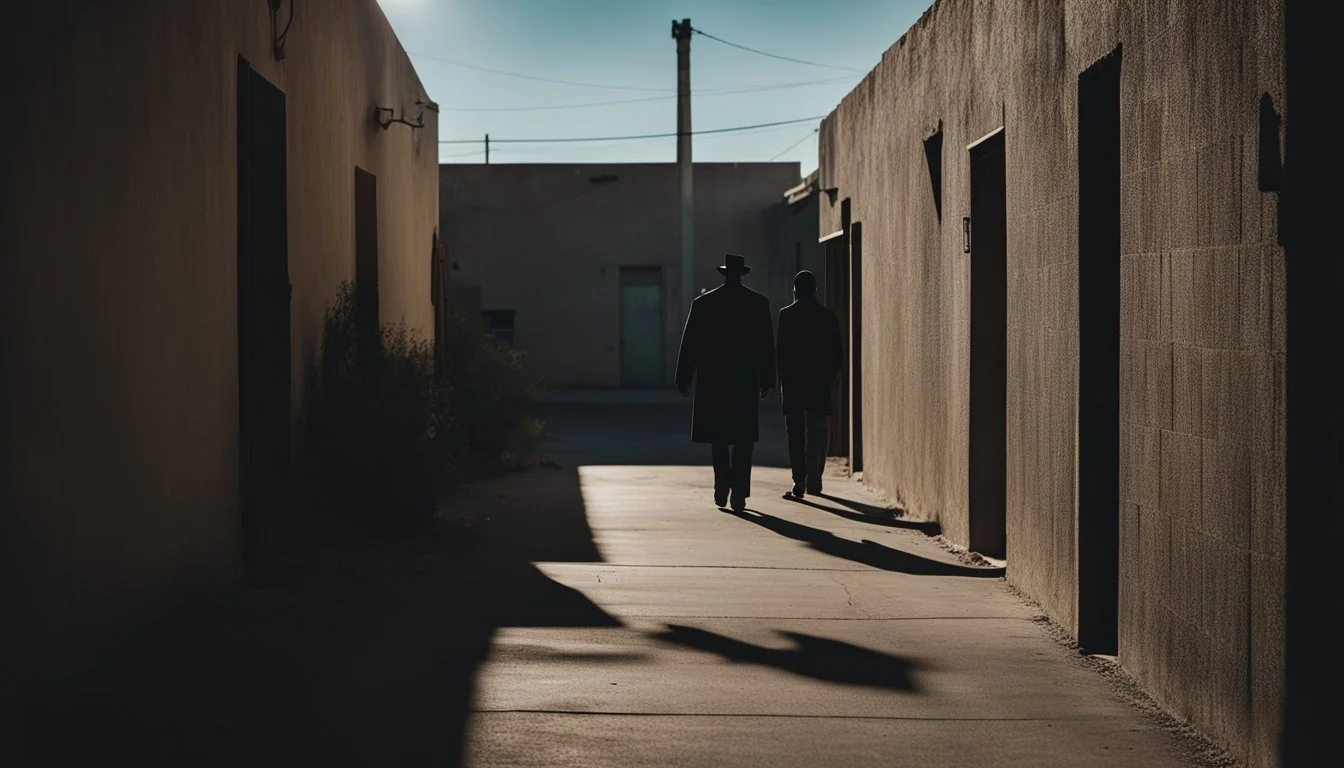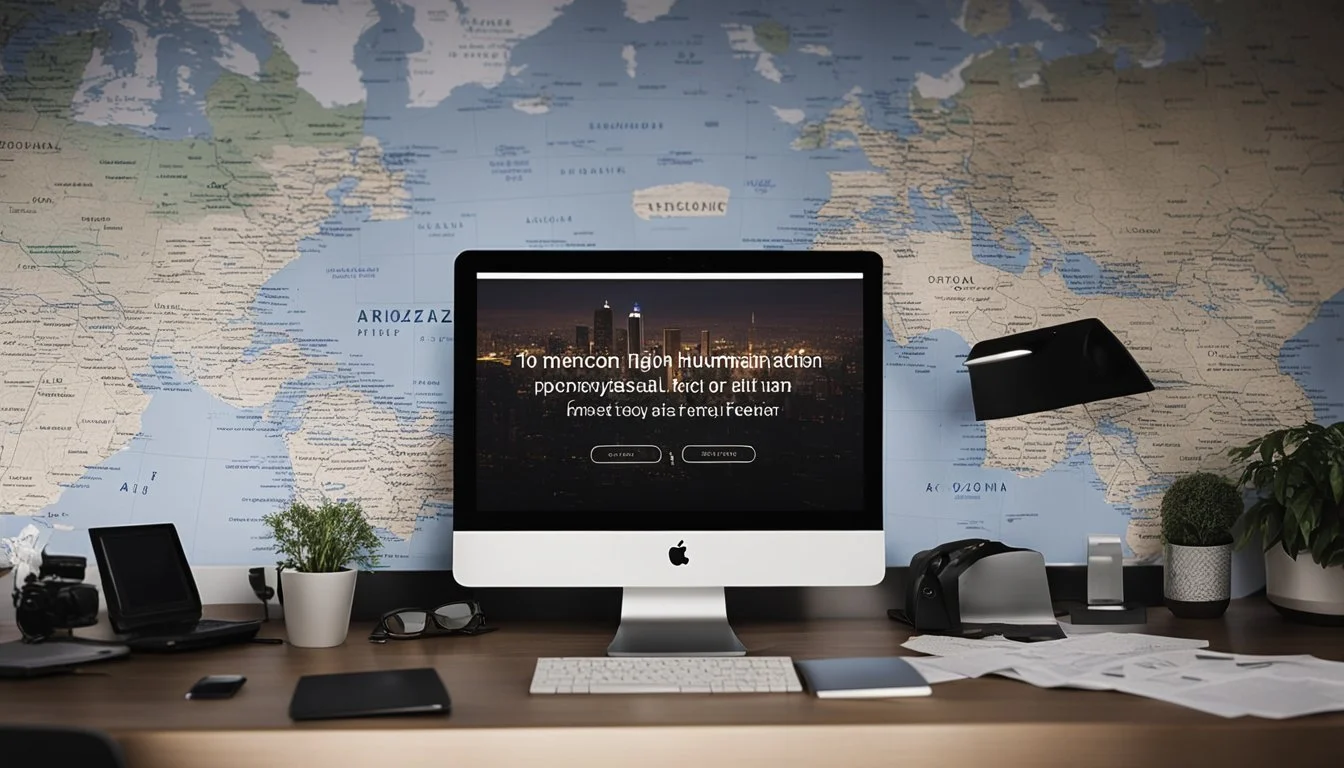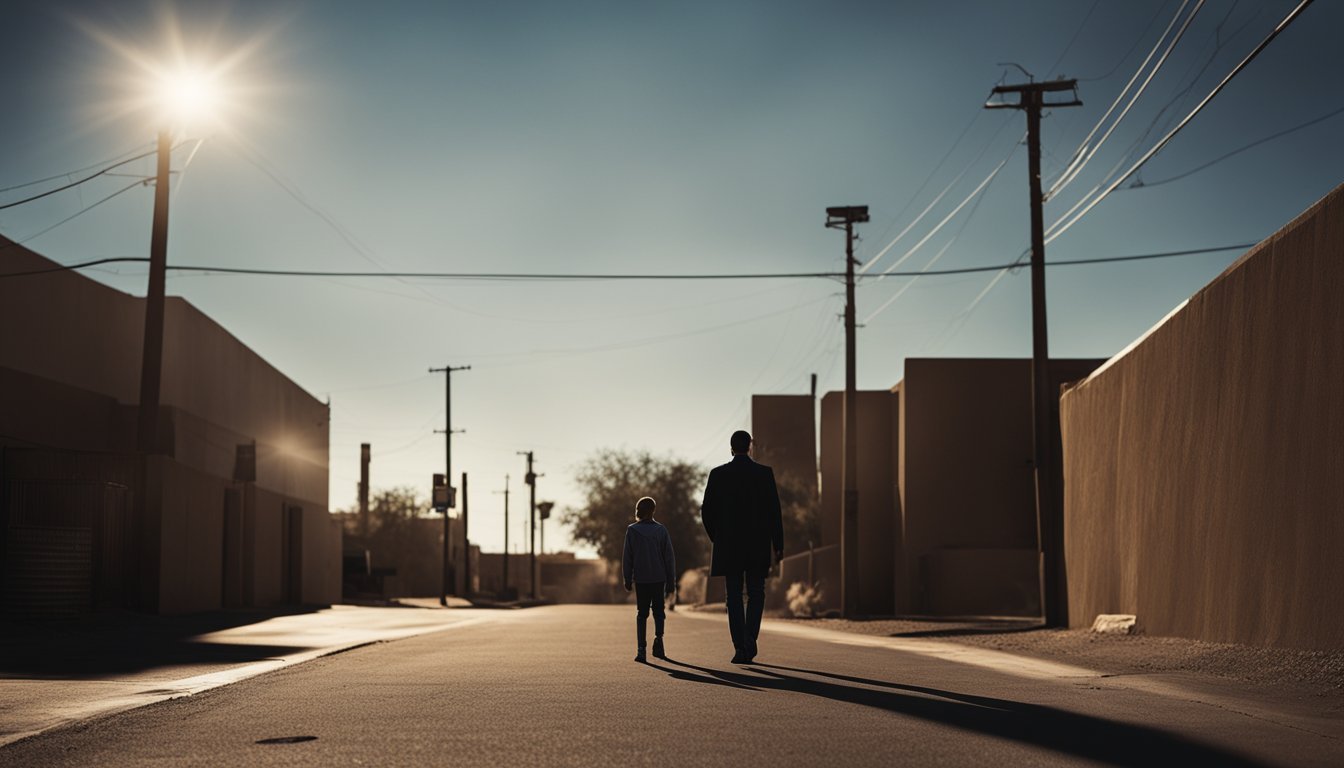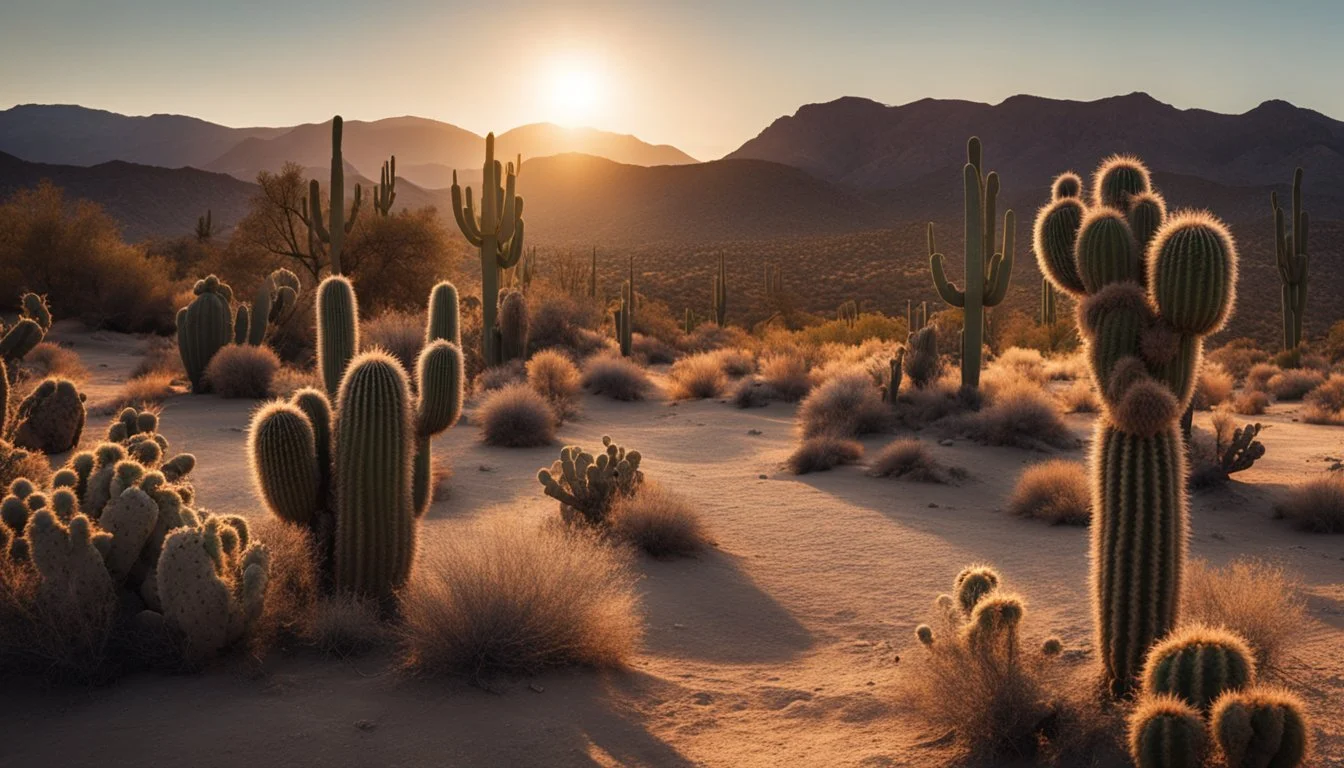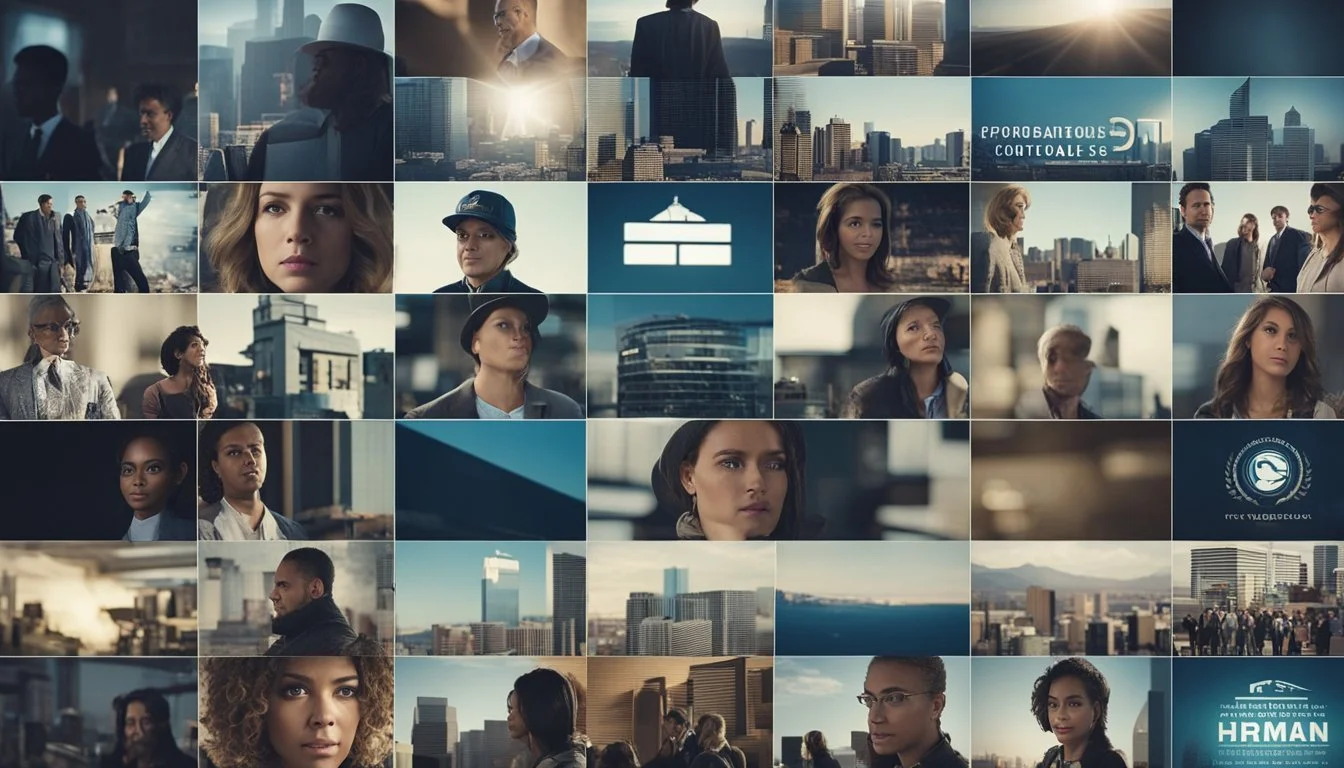5 Shocking Documentaries About Human Trafficking in Arizona
Eye-Opening Stories Revealed
Human trafficking remains one of the most pressing and hidden issues affecting communities worldwide, including Arizona. As alarming as the statistics are, it is crucial to highlight the stories and experiences of those affected to bring about awareness and change. By examining documentaries focused on human trafficking, viewers gain a deeper understanding of the complex and often hidden nature of this global crisis.
These documentaries not only shed light on the challenges faced by survivors but also emphasize the efforts of law enforcement and advocacy groups working tirelessly to combat this problem. The resilience of the human spirit, showcased in these films, serves as both a sobering reminder and an inspiration for action. Through powerful storytelling, these documentaries aim to inform, educate, and mobilize communities to fight against human trafficking.
1) The Whistleblower (2010)
The Whistleblower, a gripping 2010 film, draws attention to human trafficking in Bosnia. Based on the real-life experiences of Kathryn Bolkovac, it highlights her discovery of a sex-trafficking ring involving U.N. peacekeepers. Bolkovac, played by Rachel Weisz, faces intense challenges as she attempts to expose the truth.
The movie uncovers the dark realities of international human trafficking. Bolkovac is terminated from her job at DynCorp after raising concerns. Despite the obstacles, she remains determined to reveal the company's malicious activities.
Her journey becomes even more harrowing when a young girl, speaking little English and frequently repeating the word "Florida," appears in her office. This encounter propels Bolkovac deeper into the investigation.
The Whistleblower portrays the complexities and dangers whistleblowers face. It is a stark reminder of the ongoing battle against human trafficking and the significance of individual courage in making a difference.
For a comprehensive view, see the film's Wikipedia page.
2) I Am Jane Doe (2017)
"I Am Jane Doe" is a documentary directed by Mary Mazzio, released in 2017. The film intimately follows the harrowing experiences of American middle-school girls who fell victim to sex trafficking.
The documentary sheds light on how these girls were trafficked through classified ads on the website Backpage.com, formerly owned by the Village Voice.
Narrated by Jessica Chastain, the film showcases the tireless efforts of several mothers fighting legal battles on behalf of their daughters. The legal struggle aims to hold Backpage.com accountable for facilitating child sex trafficking.
"I Am Jane Doe" played a significant role in catalyzing legislative change. It had a powerful impact on laws aimed at protecting children from online exploitation, including the legislation signed by the President in April 2018.
This film is essential viewing to understand the real-life consequences of online sex trafficking and the legal loopholes that allowed it to persist.
For more detailed information, visit the Wikipedia page or IMDb.
3) Sex Trafficking in Arizona: The Real Story
Sex trafficking in Arizona represents a grave and persistent issue. The state has been identified as a major hotspot due to its proximity to the border and significant urban centers like Phoenix.
According to the National Human Trafficking Hotline, Phoenix reported 478 calls regarding trafficking in 2016. This highlights the alarming prevalence of this crime in the area.
The state’s victims often include young women and girls, with traffickers targeting vulnerable populations. Pimps can make substantial profits through exploitation, driving the illicit market.
"Sex Trafficking in America" (2024) is a notable documentary. The film delves into the harsh realities of young women coerced into prostitution and follows a dedicated police unit combating this issue.
For a broader look, "Inside The Horrifying World of Human Trafficking" (2017) explores the global reach of human trafficking, with a focus on children. This documentary sheds light on how trafficking networks operate and the devastating impact on victims.
Communities and law enforcement agencies in Arizona continue to work tirelessly to combat trafficking and provide support to survivors. Awareness efforts and documentaries play a crucial role in illuminating these harsh realities and sparking societal change.
Sex Trafficking in America (2024) on IMDb
Inside The Horrifying World of Human Trafficking (2017) on IMDb
4) Southern Exposure: Human Trafficking Beyond the Border
This documentary uncovers the dark realities of human trafficking operations along the US-Mexico border. Through interviews with officers, border patrol agents, and survivors, it reveals the methods traffickers use to exploit vulnerable individuals.
The film highlights how small, clan-based criminal groups often control these operations. These groups collaborate with corrupt local officials to facilitate their activities, creating a complex web of exploitation.
A significant portion of the documentary focuses on the four major criminal corridors along the border. Each corridor has its distinct dynamics and methods employed by traffickers. These corridors are often run by criminal clans who buy off officials to operate with impunity.
The documentary sheds light on the involvement of Mexico's organized crime groups. These groups may not directly run trafficking operations but often provide protection and resources to smaller trafficking networks.
Released in 2019, "Southern Exposure: Human Trafficking Beyond the Border" offers an eye-opening look into the trafficking syndicates operating at the border, making it an essential watch for those seeking to understand the full scope of human trafficking in this region.
For more information, visit IMDb.
5) Arizona's Dark Shadows: Uncovering Modern Slavery
"Arizona's Dark Shadows: Uncovering Modern Slavery" is a chilling exploration of human trafficking within the state of Arizona. It takes an in-depth look into how this heinous crime persists in various communities, affecting countless lives. The documentary reveals the involvement of criminal networks in trafficking people for sexual exploitation and forced labor.
The film features interviews with survivors who share harrowing accounts of their experiences. These personal stories provide a stark reminder of the traumatic impact of trafficking. It also examines the complex mechanisms used by traffickers to recruit, transport, and exploit their victims.
Authorities and advocates in Arizona play a crucial role in combating human trafficking. The documentary highlights the efforts of law enforcement officers, non-profit organizations, and community leaders working tirelessly to rescue victims and bring traffickers to justice.
"Arizona's Dark Shadows" emphasizes the importance of public awareness and education in the fight against modern slavery. It encourages viewers to get involved, whether through volunteering, advocacy, or simply staying informed about the signs of trafficking.
For more information, you can visit the IMDB page.
Overview of Human Trafficking in Arizona
Human trafficking in Arizona is driven by its geographical location and significant economic factors contributing to the rise in both sex and labor trafficking cases.
Historical Context and Current Trends
Arizona's position along the southern border places it at a crossroads for trafficking activities. The state has long been a conduit for traffickers due to its vast and porous border areas. In the past decade, reports to the National Human Trafficking Hotline have seen a sharp increase, reflecting greater awareness and efforts to combat trafficking.
In 2016, Phoenix ranked 16th nationwide in calls to the hotline, with 478 calls recorded. This substantial number points to the persistent issue. Additionally, the average age of entry into sexual exploitation is 19, predominantly affecting women. The increasing highs in trafficking cases correlate with the high profitability for traffickers, making Arizona a critical area of concern.
Impact on Local Communities
Human trafficking significantly affects communities in Arizona, exerting both social and economic pressures. Local neighborhoods see the damaging effects, including increased crime rates and social instability. Trafficking victims face severe physical and psychological trauma, often requiring extensive support services for recovery.
Organizations and law enforcement agencies are actively engaged in anti-trafficking efforts. Amplifying voices of survivors plays a crucial role in community awareness. The hotline statistics and investigative efforts underscore the community's ongoing challenges and the need for continued vigilance and intervention efforts to address and mitigate the impacts of trafficking effectively.
Key Organizations Combatting Human Trafficking
Organizations play a crucial role in combatting human trafficking, including government initiatives spearheading laws and enforcement and non-profits providing vital support and resources.
Government Initiatives
Arizona Human Trafficking Council: Established by the Governor's Office, this council develops policies to prevent trafficking and ensures that victims receive necessary services. The council works on enhancing public awareness and training professionals in multiple sectors, including law enforcement and healthcare.
Task Forces: Arizona hosts federal and state task forces aimed at tracking and prosecuting traffickers. These groups involve coordinated efforts from agencies such as the FBI and local police departments. They focus on disrupting trafficking networks through undercover operations and intelligence sharing.
Law Reforms: Arizona has enacted stringent laws like the "SAFE Action Project." This legislation increases penalties for traffickers and provides more robust protections for victims. Mandatory reporting requirements and improved victim support protocols are also key elements of these reforms.
Non-Profits and NGOs
Shared Hope International: This organization operates extensively within Arizona, focusing on sex trafficking. Their programs educate communities, aid in policy-making, and offer direct support to victims through safe homes and counseling services.
SOAP Project: Standing for “Save Our Adolescents from Prostitution,” SOAP collaborates with hotels and motels to distribute bars of soap labeled with the national human trafficking hotline. This initiative aims to identify and assist victims actively.
StreetLightUSA: Specializing in supporting child victims of sex trafficking, StreetLightUSA provides a range of services from residential care to trauma-informed therapy. Their mission is to offer hope and healing through comprehensive programs tailored to the unique needs of these young survivors.
The Polaris Project: Known nationally, Polaris works in Arizona to run hotlines, conduct advocacy, and develop data-driven approaches. Their efforts are targeted at both labor and sex trafficking, leveraging technology and research to pinpoint and disrupt trafficking rings.
Through these combined efforts, government agencies and non-governmental organizations are making significant strides in the fight against human trafficking in Arizona.
Warning Signs and How to Help
Understanding the indicators of human trafficking and knowing how to assist both victims and concerned citizens can make a significant difference. Learning to recognize the signs and having access to essential resources is key to addressing this critical issue.
Recognizing the Signs of Human Trafficking
Human trafficking often involves subtle signs that can easily be overlooked. Victims may exhibit physical signs of abuse, such as bruises or malnutrition. They may avoid eye contact, show extreme anxiety, or seem unusually submissive.
Behavioral red flags might include inconsistent stories, reluctance to speak in the presence of others, or not having control over personal documents. Living and working conditions are often poor, with many victims confined to specific areas and working excessively long hours.
Recognizing these warning signs can be the first step in saving a life. Being observant and aware of these patterns helps in identifying potential trafficking situations.
Resources for Victims and Concerned Citizens
There are numerous resources available for victims of human trafficking and individuals who aim to help. The National Human Trafficking Hotline (1-888-373-7888) is a critical resource offering support and information 24/7.
Local organizations like Arizona Anti-Trafficking Network provide legal assistance, housing, and counseling for victims. Law enforcement agencies can also offer immediate help and intervention.
For concerned citizens, attending awareness programs, volunteering, or donating to anti-trafficking organizations are effective ways to contribute. Staying informed and educating others about human trafficking can also have a substantial impact in aiding prevention and victim support.

